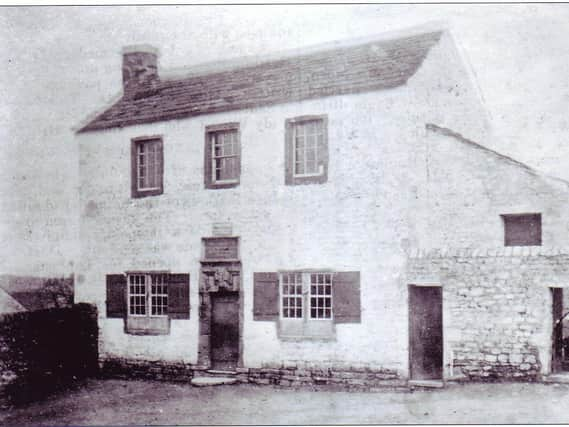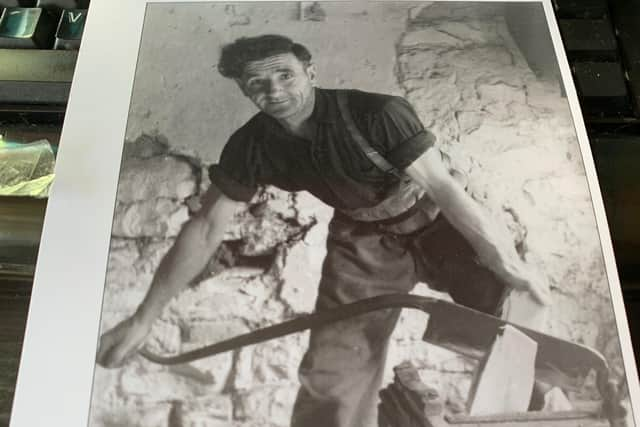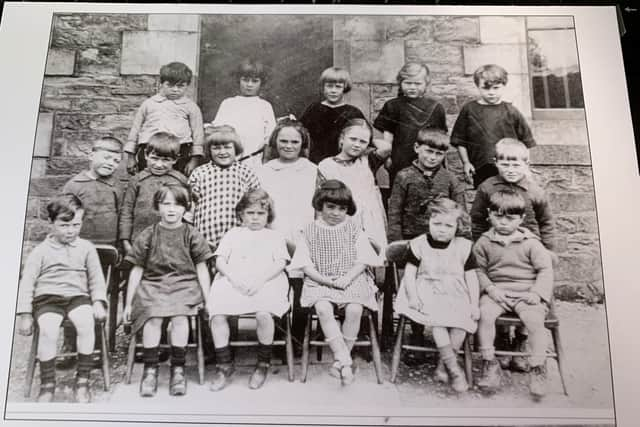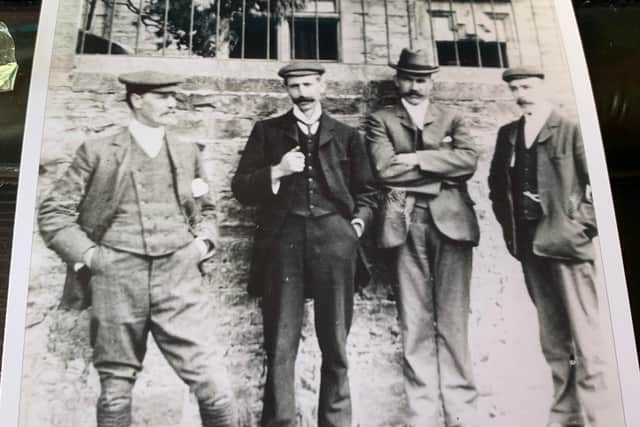Wray school caretakers had a hard job


Wray Endowed School was founded by Captain Richard Pooley who lived in Wray during the 17th century.
Captain Pooley left £20 in his will,‘Towards the building of a free school in my grounds at Weind Head in Wray, in hopes that the inhabitants of Wray will lead stone, lime, sand and slate and make convenient seats within the said school.’
Advertisement
Hide AdAdvertisement
Hide AdThe year 1684, the year of Captain Pooley’s death, is written on the lintel above the school door.


The school was enlarged in 1860 on land given by Captain J R Marshall.
It was then pulled down and rebuilt during 1885-1886.
In 1891, there was a complaint to the school cleaner regarding the coldness and dustiness of the school. This took the form of a letter to the governors by the Sunday school teachers, who used the school of a weekend.
The caretaker at the time, a Mrs Joseph Sykes, was reminded of her duties.


Advertisement
Hide AdAdvertisement
Hide AdOn August 8, 1900, the governors inspected the school and were satisfied with the state of the cleanliness and repair of the inside of the school but on inspecting the outside, ordered it to be painted with two coats and varnished, when the weather was suitable.
In 1902, the governors were to pay the parish council four shillings per year for cleaning the two earth closets (which would now be called composting toilets) at Wray School.
In 1912, water closets (toilets) were installed at a cost of £74.18.0d.
In 1914, Miss A Carradus, the school caretaker died.


There were three applicants for the post: Mrs Beckett, Mrs Bainbridge and Mrs Parker. Mrs Bainbridge was appointed.
Advertisement
Hide AdAdvertisement
Hide AdOn September 18, 1916, Mrs Bainbridge resigned and Mrs Agnes Parker and her daughter were appointed at the salary of 4/-per week in summer and 5/- in winter.
In 1918, Mrs Parker, the caretaker, applied for an increase in salary.
The County Education Committee agreed to give Mrs Parker an increase of salary of 1/-per week.
In April 1920, Mrs Parker again asked for a rise in wages. This was granted and her wages were increased from 6/- per week to 7/6d.
Advertisement
Hide AdAdvertisement
Hide AdAlso in 1920, Mr Dodd, the headmaster, was told off by the governors for dirty marks on the newly colour washed wall, which appeared to have been caused by a wet football.
It was also pointed out that the governors held him responsible for good behaviour of the children in the playground.
On March 17, 1925, the caretaker, Mrs Parker, gave four weeks’ notice.
This followed parents complaining about the heating.
Mr Woodhouse had visited the school at 9am on March 2 and the trouble appeared to be that the stove had not been lit early enough and the infant teacher had to send a message to the headmaster before they could get any extra coal during the day.
Advertisement
Hide AdAdvertisement
Hide AdIt was arranged that in future, she could get more coal when required.
Mrs Bent had seen the caretakers, Mrs Parker, about getting the fire lit at 7am.This had led to Mrs Parker giving her notice.
She would not reconsider her decision.
Applications for the post of caretaker were received from: Mrs Isabel Brown, Mrs Walmesley and Mrs A.J.Wilson. Mrs Walmesley was appointed to start work on April 11.
On April 22, 1925, Mrs Walmesley, the new caretaker, gave her notice as she found that the work could not fit in with her other duties.
Advertisement
Hide AdAdvertisement
Hide AdMrs A.J.Wilson, who had also applied for the job when it had been advertised, was therefore chosen and was willing to take the post.
But in March 1926, Mrs A.J.Wilson gave notice to terminate her engagement.
The vacancy had been advertised and there had been three applicants: Mrs I. Brown, Mrs Waller and Miss Lizzie Parker, who wanted 8/6d instead of 7/6d.
Mrs I. Brown was appointed on the same terms as Mrs A.J.Wilson.
Advertisement
Hide AdAdvertisement
Hide AdIn September 1926, the medical officer from Preston had inspected the children and found a want of cleanliness amongst them. The matter had been taken up with the parents.
The following text outlines the duties of a school caretaker at Wray Endowed School in 1940.
It was issued to the successful candidate by the school governors.
“The pay will be seven shillings and sixpence a week, with no deduction to be made during school holiday time. The caretaker must obtain a National Health Insurance Card.
1) The school will provide all cleaning materials.
Advertisement
Hide AdAdvertisement
Hide Ad2) The caretaker will find the wood necessary for lighting the fires and an allowance be paid her for 16 bags of chips during the year (the chips are the waste wood cut with the clogger’s knife during the making of clog blocks. The clog block makers used to charge villagers six pence a bag in 1940).
3) Extra payment will be paid for cleaning the premises after any painting or colouring has been done.
4) The treasurer must be given 14 days notice as regards coke and seven days as regards coal, when either of these will be required.
Note: copies of these duties shall be handed by the treasurer to the caretaker and to the headteacher, so that the latter may see that they are properly carried out.
We now come to the duties of the caretaker:
Advertisement
Hide AdAdvertisement
Hide Ad1) Cleaning, daily at the close of afternoon school, open the windows, spread damp sawdust on the floors and thoroughly sweep out all the rooms.
2) Dust all forms, desks, windowsills and furniture, completing their work not later than 8.30am.
3) Outside offices and conveniences to be kept clean, and if found dirty, the headteacher to be notified.
Weekly: 1) Wash towels and dusters as required.
2) Clear dust and dirt from grid and channel at the west doors.
Advertisement
Hide AdAdvertisement
Hide Ad3) All wooden seats and porcelain in WC’s to be scrubbed with five per cent solution of Jayes fluid and soapy water.
Monthly: 1) Clean the windows inside.
2) Wash out the ink-wells.
Yearly: 1) During the summer and Christmas holidays, all the rooms, cupboards etc. to be thoroughly cleaned, the walls swept down and the floors scrubbed.
Heating: 1) Clean out the stove each evening, sifting the ashes from the clinkers and cinders. Use up the cinders in the stove, mixing them with coke before doing so.
2) Light up the stove at 7am. It is necessary that the temperature at 8.30am shall be at least 50 degrees.
Advertisement
Hide AdAdvertisement
Hide Ad3) No coal shall be burnt in the stove, except just enough to light the fire with.
4) After making up the stove, a bucket full of coke shall be left alongside it.
5) The fire in the upstairs room to be lit in the morning when the headteacher so directs.
6) In frosty weather, the heating must be kept on over weekends and during holidays, the fire being attended to and banked up at 9pm; or if there is a shortage of fuel, the water must be run off.
Miscellaneous:
1) All doors to be locked each evening.
Advertisement
Hide AdAdvertisement
Hide Ad2) Turn off the water each evening after flushing the WCs and turn it on again each morning, so that the tanks fill in about three hours. 3) Draw the headteacher’s attention immediately to any defects, breakages in furniture, windows, drains, heating apparatus etc.
4) Every care to be taken with the school property and economy exercised in the use of materials.
5) Generally perform any reasonable request made by the managers or headteacher provided such comes within the scope of a caretaker’s duties.”